By Maxmilian Wechsler
| EVERY foreign embassy in Bangkok boasts a display designed to capture the essence of the country and make an impression on visitors. The embassy of the Grand Duchy of Luxembourg succeeds with an impressive range of huge photographs depicting Luxembourg’s countryside on some of its walls. The significant role of the monarchy is also emphasized with a large photo of HRH Grand Duke Henri, Luxembourg’s head of state, placed prominently near entrance to the embassy, alongside a group photo of royal personages from all over the world who attended the 60th anniversary celebration of His Majesty King Bhumibol Adulyadej’s accession to the throne in 2006. Despite its relatively small size and population – about 530,000 people in an area slightly more than 2,500 square kilometers – Luxembourg occupies an important position within the 28-member European Union and maintains strong relations with many countries around the globe, a point stressed by His Excellency Marc Thill, Ambassador of Luxembourg to the Kingdom of Thailand. |
Asked about the embassy’s attractive interior on the 17th floor of Q House Lumpini on Sathorn Road, Mr Thill said it was inspired by a Thai designer, while the large photographs came directly from Luxembourg.
As for his background, the Ambassador said: “I was born in very small village in 1953. I attended secondary school in the capital, the city of Luxembourg, as at that time we didn’t have too many secondary schools around the country. I furthered my education abroad, obtaining a degree in law from Liège, Belgium, because, again, at that time there were no universities in Luxembourg. I then earned a diploma in European Studies at the College of Europe in Bruges, also in Belgium, in 1976,” said Mr Thill.
A year later he started work at the Ministry of Foreign Affairs (MFA) as a civil servant and rose rapidly despite his youth. “In the beginning, I worked with Gaston Thorn, who served in high positions both domestically and internationally, including as prime minister from 1974 to 1979, president of the United Nations General Assembly in 1975-76 and president of the European Commission from 1981until 1985.”
Mr Thill left the MFA in 1986 because he wanted to practice law. He went to work at the European Court of Justice of the European Union, which is seated in Luxembourg, returning to the MFA in 2003 when he had the opportunity to become director of European Affairs and International Economic Relations for the ministry. In 2005 he was appointed as ambassador and representative of Luxembourg to the Organization for Security and Co-operation in Europe in Vienna, Austria, and concurrently accredited as ambassador to Hungary and the Slovak Republic, positions he held until he was appointed ambassador to the Kingdom of Thailand in 2011.
Mr Thill speaks Luxembourgish, French, German and English, but said that, unfortunately, he finds the Thai language a little too difficult. He is married with two children, aged 28 and 30. His wife is an active member of various clubs, including the well-known Spouses of the Heads of Mission, who have regular activities in Bangkok.
Turning to Thailand
“My first visit to Thailand was in 2006. At that time I combined a professional visit to attend a conference with tourism. I stayed a little longer in order to visit the northern part of the country and spend a few days on the beach.
“However, I should point out that the professional reason I first came here may seem a little strange, because the conference was held by the Organization for Security and Cooperation in Europe. Why did the meeting take place in Thailand? Thailand was and is one of the organization’s ‘Asian partners,’ and a very active one at that. In fact Thailand frequently hosts seminars and conferences for this and other European organizations.
“My next trip to this country was after I was appointed ambassador, when I arrived on September 1, 2011,” said Mr Thill, adding that he doesn’t consider himself an expert on Asia. He has learned a great deal in a relatively short time, however, as he is concurrently ambassador to Indonesia, Laos, Malaysia, Singapore, Vietnam, ASEAN (headquartered in Jakarta) and, since September 25, to Myanmar. The scope of the assignment reflects the obvious confidence his ministry has in him.
As a small country, Luxembourg has understandably streamlined its diplomatic service. “We have only four embassies in Asia and only one in Southeast Asia, in Thailand. The other embassies we have in Asia are in China, Japan and India.
“I am very happy with our embassy in Bangkok, which is relatively small. We are located in a very nice, modern building in a good environment close to Lumpini Park and not far from my residence. We have four diplomats here from Luxembourg, including myself, and a few local employees – three secretaries and one consular assistant who works a half day, and the embassy drivers.
“We have a very small team at the embassy, which means it is not difficult for me to lead because we are so few, but on the other hand, we have to take good care of a little bit of everything. As mentioned, we are in charge of almost all Southeast Asia, and we also have to take care of the embassy’s consular, trade, political and cultural sections, as well as the budget. Sometimes we travel a lot and must be out of Bangkok for several weeks at a time.
“I am always saying that we have only seven days in a week and eight, ten or twelve hours a day, so we have to focus on the priority at the given moment. If something special is going on which is of interest to us in one of Thailand’s neighboring counties, then we have to take care of it first. If our minister is coming to Thailand or to Indonesia, for example, then we have to focus on this matter and cannot follow absolutely everything occurring in other countries on a daily basis,” said Mr Thill.
“For example, during the last year I focused a lot on Singapore because our prime minister paid an official visit there. I also focused a lot on Myanmar – even though at that time I was still waiting to present my credentials there – because our minister of foreign affairs went there and we have an economic mission in Myanmar as well.
“However, Thailand must always be a primary focus and we follow very closely what is going on here in order to be able to look after our citizens who live here as well as Thai people wishing to visit Luxembourg, whether for business or otherwise.
“We also have to look after our nationals who are living in other countries under this embassy’s jurisdiction, like Indonesia. This is sometimes difficult, but it helps that Luxembourg has arrangements with our neighboring countries of Belgium and the Netherlands, who are our long-time partners. We have a close cooperation with them on visa, consular and other matters. We also have in each of the countries under my jurisdiction honorary consuls and foreign trade councils who are also very helpful,” said Mr Thill.
“As for Luxembourg nationals living in Thailand, the exact number is difficult to estimate because our citizens don’t have to register with our embassy. My estimate is that 120 Luxembourg nationals are living in Thailand permanently. This is a high number in comparison to the population of Luxembourg and the Luxembourg nationals living there. In fact, it would be equivalent to about 32,000 Germans, taking into account the German population of 80 million. I should also point out that the number of our citizens living in Thailand is increasing as more people come for retirement. There are about 400 Thais residing in Luxembourg.
“As head of our Bangkok embassy, I receive a lot of information from different sources and from various countries. I have to say that I have a rather big administrative burden, so I don’t have as much time as I’d like to reach out and make contact with Thai society. I am doing my best to participate and meet people in seminars and meetings, but sometimes this is difficult as we are a small team with many responsibilities.”
As for his background, the Ambassador said: “I was born in very small village in 1953. I attended secondary school in the capital, the city of Luxembourg, as at that time we didn’t have too many secondary schools around the country. I furthered my education abroad, obtaining a degree in law from Liège, Belgium, because, again, at that time there were no universities in Luxembourg. I then earned a diploma in European Studies at the College of Europe in Bruges, also in Belgium, in 1976,” said Mr Thill.
A year later he started work at the Ministry of Foreign Affairs (MFA) as a civil servant and rose rapidly despite his youth. “In the beginning, I worked with Gaston Thorn, who served in high positions both domestically and internationally, including as prime minister from 1974 to 1979, president of the United Nations General Assembly in 1975-76 and president of the European Commission from 1981until 1985.”
Mr Thill left the MFA in 1986 because he wanted to practice law. He went to work at the European Court of Justice of the European Union, which is seated in Luxembourg, returning to the MFA in 2003 when he had the opportunity to become director of European Affairs and International Economic Relations for the ministry. In 2005 he was appointed as ambassador and representative of Luxembourg to the Organization for Security and Co-operation in Europe in Vienna, Austria, and concurrently accredited as ambassador to Hungary and the Slovak Republic, positions he held until he was appointed ambassador to the Kingdom of Thailand in 2011.
Mr Thill speaks Luxembourgish, French, German and English, but said that, unfortunately, he finds the Thai language a little too difficult. He is married with two children, aged 28 and 30. His wife is an active member of various clubs, including the well-known Spouses of the Heads of Mission, who have regular activities in Bangkok.
Turning to Thailand
“My first visit to Thailand was in 2006. At that time I combined a professional visit to attend a conference with tourism. I stayed a little longer in order to visit the northern part of the country and spend a few days on the beach.
“However, I should point out that the professional reason I first came here may seem a little strange, because the conference was held by the Organization for Security and Cooperation in Europe. Why did the meeting take place in Thailand? Thailand was and is one of the organization’s ‘Asian partners,’ and a very active one at that. In fact Thailand frequently hosts seminars and conferences for this and other European organizations.
“My next trip to this country was after I was appointed ambassador, when I arrived on September 1, 2011,” said Mr Thill, adding that he doesn’t consider himself an expert on Asia. He has learned a great deal in a relatively short time, however, as he is concurrently ambassador to Indonesia, Laos, Malaysia, Singapore, Vietnam, ASEAN (headquartered in Jakarta) and, since September 25, to Myanmar. The scope of the assignment reflects the obvious confidence his ministry has in him.
As a small country, Luxembourg has understandably streamlined its diplomatic service. “We have only four embassies in Asia and only one in Southeast Asia, in Thailand. The other embassies we have in Asia are in China, Japan and India.
“I am very happy with our embassy in Bangkok, which is relatively small. We are located in a very nice, modern building in a good environment close to Lumpini Park and not far from my residence. We have four diplomats here from Luxembourg, including myself, and a few local employees – three secretaries and one consular assistant who works a half day, and the embassy drivers.
“We have a very small team at the embassy, which means it is not difficult for me to lead because we are so few, but on the other hand, we have to take good care of a little bit of everything. As mentioned, we are in charge of almost all Southeast Asia, and we also have to take care of the embassy’s consular, trade, political and cultural sections, as well as the budget. Sometimes we travel a lot and must be out of Bangkok for several weeks at a time.
“I am always saying that we have only seven days in a week and eight, ten or twelve hours a day, so we have to focus on the priority at the given moment. If something special is going on which is of interest to us in one of Thailand’s neighboring counties, then we have to take care of it first. If our minister is coming to Thailand or to Indonesia, for example, then we have to focus on this matter and cannot follow absolutely everything occurring in other countries on a daily basis,” said Mr Thill.
“For example, during the last year I focused a lot on Singapore because our prime minister paid an official visit there. I also focused a lot on Myanmar – even though at that time I was still waiting to present my credentials there – because our minister of foreign affairs went there and we have an economic mission in Myanmar as well.
“However, Thailand must always be a primary focus and we follow very closely what is going on here in order to be able to look after our citizens who live here as well as Thai people wishing to visit Luxembourg, whether for business or otherwise.
“We also have to look after our nationals who are living in other countries under this embassy’s jurisdiction, like Indonesia. This is sometimes difficult, but it helps that Luxembourg has arrangements with our neighboring countries of Belgium and the Netherlands, who are our long-time partners. We have a close cooperation with them on visa, consular and other matters. We also have in each of the countries under my jurisdiction honorary consuls and foreign trade councils who are also very helpful,” said Mr Thill.
“As for Luxembourg nationals living in Thailand, the exact number is difficult to estimate because our citizens don’t have to register with our embassy. My estimate is that 120 Luxembourg nationals are living in Thailand permanently. This is a high number in comparison to the population of Luxembourg and the Luxembourg nationals living there. In fact, it would be equivalent to about 32,000 Germans, taking into account the German population of 80 million. I should also point out that the number of our citizens living in Thailand is increasing as more people come for retirement. There are about 400 Thais residing in Luxembourg.
“As head of our Bangkok embassy, I receive a lot of information from different sources and from various countries. I have to say that I have a rather big administrative burden, so I don’t have as much time as I’d like to reach out and make contact with Thai society. I am doing my best to participate and meet people in seminars and meetings, but sometimes this is difficult as we are a small team with many responsibilities.”
Bilateral relations and trade
Thailand and Luxembourg celebrated 50 years of diplomatic relations in 1959, though the first ambassador of Luxembourg to actually reside in Thailand arrived in September 2007, and the embassy was officially inaugurated by Luxembourg’s Minister of Foreign Affairs in May 2008.
“Beforehand, our embassy in Southeast Asia was located in Kuala Lumpur in Malaysia. We decided to transfer the embassy to Thailand because Thailand is one of the biggest economies in Southeast Asia, and there are so many of our citizens here. Thailand is also geographically better located to serve all the countries.
“Relations between our two countries are excellent, but that doesn’t mean we can’t do better, for instance in the trade sector. Thailand is our second largest trading partner in Southeast Asia after Singapore. Of course the trade of goods – because of its modest level – depends a lot on individual contracts.
“It happens that in one year trade may increase a lot, and then fall down again the next. It is important that we stabilize this on a positive trend. As far as exports from Thailand to Luxembourg are concerned, we have noticed that these decreased with the European economic crisis in 2008 and 2009 and since then have risen but haven’t came back to levels before the crisis. So it is important that Thais rediscover the Luxembourg market.
“Luxembourg’s economy is based on services, mainly financial services. In this area we have a good relationship with Thailand, but it is also stagnating a little. Therefore, we should work together to make progress, and we are very hopeful that we can do so. Recently, in November 2012, we signed an important agreement between our countries’ financial regulators, on the Luxembourg side the Commission de Surveillance du Secteur Financier and on the Thai side the Securities Exchange Commission,” explained Mr Thill.
“The bilateral agreement of cooperation was signed to promote relations in the financial sector and we are also putting a lot of emphasis on the ongoing EU-Thai free trade agreement, which will cover not only goods but also services and investment. There could be an agreement in the negotiations liberalizing trading services somewhat, and if so there certainly would be big opportunities for Luxembourg’s financial service operators and investors to have more of a presence in Thailand.
“The main business focus of Luxembourg’s companies at present is in the Eurozone and neighboring countries, which account for 85 percent of our foreign trade. We have only half a dozen big players who have a global presence and have headquarters or factories in Asia. Some of them are based in Singapore, a very important country for Luxembourg.
“We also have some large companies operating in Thailand, for example Cargolux, our national air freight carrier, which has had an office in Bangkok for 30 years and flies four to five times a week between Bangkok and Luxembourg. The goods they bring into my country are not all meant for our market – because we are centrally located in Europe, we are a gateway for Thai products dispatched to neighboring countries.
“ArcelorMittal is the biggest steel company in the world, with headquarters in Luxembourg. They were interested in buying a factory in Thailand, but it didn’t happen, largely because of the economic and financial crisis. However, in the past Luxembourg steel has been used to build important buildings here, including, apparently, the popular MBK. I believe that in the building our embassy is located, one Luxembourg firm was involved in the construction by providing marble. A Luxembourg firm also participated in the construction of the first blast furnace in Thailand.
“The world’s leading satellite operator, SES, which has its headquarters in Luxembourg and operates around 50 satellites, has good business links in Thailand. We have major companies operating here, but we have difficulties in establishing a presence for smaller enterprises. Even when they happen to have an office here, they are more likely to be importing goods and distributing them rather than producing here. For example, Rotarex has an office here and provides automotive parts to Thailand’s motor industry.”
Banking and tax laws
On questions concerning Luxembourg’s banking and tax laws and regulations, Mr Thill replied:
“As one of the world’s leading financial centers, Luxembourg has always been very supportive of all initiatives, not only European initiatives, in favor of a transparent, safe and fair financial sector. Luxembourg has taken all the necessary measures recommended by the Financial Action Task Force, of which it is a member since 1990, in order to criminalize all money laundering activities and all activities which might contribute to the financing of terrorism.
“Luxembourg’s banking practices are not secretive, even though we have always considered that client privacy is – and remains - an important value also in the banking sector. Luxembourg has a large network of non-double taxation treaties around the world, also with Thailand, consistent with the Organization for Economic Cooperation and Development (OECD) model and the exchange of information on demand, on a case-by-case basis.
“Luxembourg’s legislations and its subsequent banking and tax regulations are strictly compliant with existing EU legislations. The European Commission, as a guardian of the successive EU treaties, and the European Court of Justice (ECJ) are there to guarantee the application of European law and the statistics published by both institutions as well as the case-law of the ECJ easily show that Luxembourg is indeed among the first in class when it comes to honoring its European commitments.
“Luxembourg is also a member of the Global Forum on Transparency and Exchange of Information for Tax Purposes and is strongly committed to implementing the highest standards in tax transparency and thus combating tax fraud and tax evasion.”
Cultural exchanges and tourism
Mr Thill noted that His Majesty King Bhumibol Adulyadej and Her Royal Highness Queen Sirikit visited Luxembourg in 1960, one year after the establishment of formal diplomatic ties, and relations between the two royal families remain excellent.
“His Royal Highness Grand Duke Henri, who became the Grand Duke in 2000, used to come to Thailand on a regular basis when he was the Crown Prince. In the 1990s he came at least three times on official visits. In 1996 he attended the festivities of the 50th anniversary of the King’s accession to throne and he came here for the 60th anniversary in 2006 as well. Every time he comes to this region, he wants to come to Bangkok. The last time he visited Bangkok was in 2011 while on the way to a state visit to Vietnam.
“In the past two or three years there haven’t been many top-level visits on our side, but this is probably due to the economic problems we have had in Europe and also because our prime minister was for several years presiding over the Eurozone-Group of ministers of Finance. However, there have been important visits, for instance from our minister of foreign affairs, in 2006, 2008 and in 2009. An economic mission in 2008 was headed by our minister of economy. Contacts are regular, but we are looking for more opportunities for exchanges at the ministerial level.”
Mr Thill said that out of a population of about 530,000 in Luxembourg, only around 300,000 are citizens, so about 45 percent are foreigners, the highest proportion of any EU country. Therefore he was only able to give statistics on tourism relating to Luxembourg citizens who have passports. “Thailand is the main destination of Luxembourg tourists outside of Europe, and the number is increasing.
“The final figures I have are for 2011, when 4,000 of our citizens came here. This may sound like a very modest figure, but keep in mind our small population – again, compared to the overall population of Germany, this figure is equivalent to more than one million tourists. I must also say that the Luxembourg tourists coming here are highly disciplined and very rarely cause or have any problems.
“Giving exact figures for the number of Thais visiting Luxembourg is a little more difficult because they normally visit Europe on a Schengen visa.
“Did you know,” mused the Ambassador, “that Schengen is a village in Luxembourg in the Moselle region? Schengen was chosen in 1985 by the founding members of the Schengen scheme – Belgium, France, Germany, Luxembourg and the Netherlands – as the place to sign the agreement because the village is located where the borders of France, Luxembourg and Germany meet. In many ways Luxembourg is a sort of European cultural ‘melting pot.’
“The official language of Luxembourg is Luxembourgish, which has a lot of similarities with Mosel-Frankish dialects spoken in Germany. At the age of six, children start to learn German and French as these languages have an official status in Luxembourg. For instance, my reports to our MFA are written in French, as are our laws. But German is the language of some newspapers and other print media, and all the people in government can write and speak in French and German as well as in Luxembourgish. So in effect we have three official languages in Luxembourg,” Mr Thill said.
“We are trying to organize more cultural exchanges. A famous Luxembourg pianist performed here last year and this year we are trying to bring an often-rewarded Luxembourg vibraphone musician to Thailand. We are working on other events, but unfortunately, there’s always the question of distance and the cost of bringing the people here.
“Luxembourg-made movies regularly participate in film festivals in the region. This year we were in the privileged position of having a movie produced and filmed in Luxembourg presented to open the European Film Festival in Bangkok, with the actors speaking Luxembourgish. Many movies with international stars are produced in Luxembourg as well.”
Thailand and Luxembourg celebrated 50 years of diplomatic relations in 1959, though the first ambassador of Luxembourg to actually reside in Thailand arrived in September 2007, and the embassy was officially inaugurated by Luxembourg’s Minister of Foreign Affairs in May 2008.
“Beforehand, our embassy in Southeast Asia was located in Kuala Lumpur in Malaysia. We decided to transfer the embassy to Thailand because Thailand is one of the biggest economies in Southeast Asia, and there are so many of our citizens here. Thailand is also geographically better located to serve all the countries.
“Relations between our two countries are excellent, but that doesn’t mean we can’t do better, for instance in the trade sector. Thailand is our second largest trading partner in Southeast Asia after Singapore. Of course the trade of goods – because of its modest level – depends a lot on individual contracts.
“It happens that in one year trade may increase a lot, and then fall down again the next. It is important that we stabilize this on a positive trend. As far as exports from Thailand to Luxembourg are concerned, we have noticed that these decreased with the European economic crisis in 2008 and 2009 and since then have risen but haven’t came back to levels before the crisis. So it is important that Thais rediscover the Luxembourg market.
“Luxembourg’s economy is based on services, mainly financial services. In this area we have a good relationship with Thailand, but it is also stagnating a little. Therefore, we should work together to make progress, and we are very hopeful that we can do so. Recently, in November 2012, we signed an important agreement between our countries’ financial regulators, on the Luxembourg side the Commission de Surveillance du Secteur Financier and on the Thai side the Securities Exchange Commission,” explained Mr Thill.
“The bilateral agreement of cooperation was signed to promote relations in the financial sector and we are also putting a lot of emphasis on the ongoing EU-Thai free trade agreement, which will cover not only goods but also services and investment. There could be an agreement in the negotiations liberalizing trading services somewhat, and if so there certainly would be big opportunities for Luxembourg’s financial service operators and investors to have more of a presence in Thailand.
“The main business focus of Luxembourg’s companies at present is in the Eurozone and neighboring countries, which account for 85 percent of our foreign trade. We have only half a dozen big players who have a global presence and have headquarters or factories in Asia. Some of them are based in Singapore, a very important country for Luxembourg.
“We also have some large companies operating in Thailand, for example Cargolux, our national air freight carrier, which has had an office in Bangkok for 30 years and flies four to five times a week between Bangkok and Luxembourg. The goods they bring into my country are not all meant for our market – because we are centrally located in Europe, we are a gateway for Thai products dispatched to neighboring countries.
“ArcelorMittal is the biggest steel company in the world, with headquarters in Luxembourg. They were interested in buying a factory in Thailand, but it didn’t happen, largely because of the economic and financial crisis. However, in the past Luxembourg steel has been used to build important buildings here, including, apparently, the popular MBK. I believe that in the building our embassy is located, one Luxembourg firm was involved in the construction by providing marble. A Luxembourg firm also participated in the construction of the first blast furnace in Thailand.
“The world’s leading satellite operator, SES, which has its headquarters in Luxembourg and operates around 50 satellites, has good business links in Thailand. We have major companies operating here, but we have difficulties in establishing a presence for smaller enterprises. Even when they happen to have an office here, they are more likely to be importing goods and distributing them rather than producing here. For example, Rotarex has an office here and provides automotive parts to Thailand’s motor industry.”
Banking and tax laws
On questions concerning Luxembourg’s banking and tax laws and regulations, Mr Thill replied:
“As one of the world’s leading financial centers, Luxembourg has always been very supportive of all initiatives, not only European initiatives, in favor of a transparent, safe and fair financial sector. Luxembourg has taken all the necessary measures recommended by the Financial Action Task Force, of which it is a member since 1990, in order to criminalize all money laundering activities and all activities which might contribute to the financing of terrorism.
“Luxembourg’s banking practices are not secretive, even though we have always considered that client privacy is – and remains - an important value also in the banking sector. Luxembourg has a large network of non-double taxation treaties around the world, also with Thailand, consistent with the Organization for Economic Cooperation and Development (OECD) model and the exchange of information on demand, on a case-by-case basis.
“Luxembourg’s legislations and its subsequent banking and tax regulations are strictly compliant with existing EU legislations. The European Commission, as a guardian of the successive EU treaties, and the European Court of Justice (ECJ) are there to guarantee the application of European law and the statistics published by both institutions as well as the case-law of the ECJ easily show that Luxembourg is indeed among the first in class when it comes to honoring its European commitments.
“Luxembourg is also a member of the Global Forum on Transparency and Exchange of Information for Tax Purposes and is strongly committed to implementing the highest standards in tax transparency and thus combating tax fraud and tax evasion.”
Cultural exchanges and tourism
Mr Thill noted that His Majesty King Bhumibol Adulyadej and Her Royal Highness Queen Sirikit visited Luxembourg in 1960, one year after the establishment of formal diplomatic ties, and relations between the two royal families remain excellent.
“His Royal Highness Grand Duke Henri, who became the Grand Duke in 2000, used to come to Thailand on a regular basis when he was the Crown Prince. In the 1990s he came at least three times on official visits. In 1996 he attended the festivities of the 50th anniversary of the King’s accession to throne and he came here for the 60th anniversary in 2006 as well. Every time he comes to this region, he wants to come to Bangkok. The last time he visited Bangkok was in 2011 while on the way to a state visit to Vietnam.
“In the past two or three years there haven’t been many top-level visits on our side, but this is probably due to the economic problems we have had in Europe and also because our prime minister was for several years presiding over the Eurozone-Group of ministers of Finance. However, there have been important visits, for instance from our minister of foreign affairs, in 2006, 2008 and in 2009. An economic mission in 2008 was headed by our minister of economy. Contacts are regular, but we are looking for more opportunities for exchanges at the ministerial level.”
Mr Thill said that out of a population of about 530,000 in Luxembourg, only around 300,000 are citizens, so about 45 percent are foreigners, the highest proportion of any EU country. Therefore he was only able to give statistics on tourism relating to Luxembourg citizens who have passports. “Thailand is the main destination of Luxembourg tourists outside of Europe, and the number is increasing.
“The final figures I have are for 2011, when 4,000 of our citizens came here. This may sound like a very modest figure, but keep in mind our small population – again, compared to the overall population of Germany, this figure is equivalent to more than one million tourists. I must also say that the Luxembourg tourists coming here are highly disciplined and very rarely cause or have any problems.
“Giving exact figures for the number of Thais visiting Luxembourg is a little more difficult because they normally visit Europe on a Schengen visa.
“Did you know,” mused the Ambassador, “that Schengen is a village in Luxembourg in the Moselle region? Schengen was chosen in 1985 by the founding members of the Schengen scheme – Belgium, France, Germany, Luxembourg and the Netherlands – as the place to sign the agreement because the village is located where the borders of France, Luxembourg and Germany meet. In many ways Luxembourg is a sort of European cultural ‘melting pot.’
“The official language of Luxembourg is Luxembourgish, which has a lot of similarities with Mosel-Frankish dialects spoken in Germany. At the age of six, children start to learn German and French as these languages have an official status in Luxembourg. For instance, my reports to our MFA are written in French, as are our laws. But German is the language of some newspapers and other print media, and all the people in government can write and speak in French and German as well as in Luxembourgish. So in effect we have three official languages in Luxembourg,” Mr Thill said.
“We are trying to organize more cultural exchanges. A famous Luxembourg pianist performed here last year and this year we are trying to bring an often-rewarded Luxembourg vibraphone musician to Thailand. We are working on other events, but unfortunately, there’s always the question of distance and the cost of bringing the people here.
“Luxembourg-made movies regularly participate in film festivals in the region. This year we were in the privileged position of having a movie produced and filmed in Luxembourg presented to open the European Film Festival in Bangkok, with the actors speaking Luxembourgish. Many movies with international stars are produced in Luxembourg as well.”
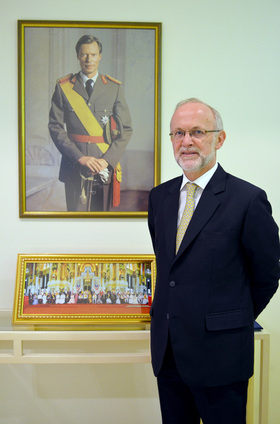
Praise for Thailand
“As for diplomatic and governmental relations with Thailand, everything is going fine, and the officials of the Thai Foreign Ministry are very helpful, taking the initiative to inform foreign embassies on a regular basis on important topics. If you have any special concerns they are always open and available for appointments.
“What I like the most in Thailand are the people, who are truly friendly. I don’t want to use the cliché that Thai people are always smiling, but they are not only smiling, but also very helpful. I can honestly say that I have never worked with more good-natured people. Our local staff is excellent, and my experiences outside the embassy have also been great.
“What I don’t like much – and this is probably because I come from a small country whose capital has only about 100,000 people, including the surrounding area – is the traffic situation in Bangkok. But as in big cities around the world, one must adapt.
“As I have to share my time between Thailand and other countries under my responsibility, I don’t have as much opportunity for travel in Thailand as I’d like. I have managed to visit some places in the North and Northeast, including Chiang Mai and Udon Thani, and I also went to Phuket recently with other ambassadors from EU countries.”
Mr Thill said he was very much impressed with Myanmar during a trip there in February 2012. “I had the responsibility of preparing the way for a visit by our minister of foreign affairs to Myanmar where we had the opportunity to meet ‘the Lady,’ Aung San Suu Kyi. We also met with Prime Minister Thein Sein, the minister of foreign affairs and other officials. It was a big achievement for our embassy staff. At that time I was still waiting to present my credentials in Myanmar, and Luxembourg and Myanmar didn’t even have formal diplomatic relations. Nevertheless, we managed to organize the visit and we are grateful to the Myanmar authorities who were so welcoming.
“When we met with Aung San Suu Kyi she hadn’t yet been elected to the parliament – the elections took place in April. The main focus of the discussion was the campaign and the elections, along with the prospects of the country for progress.
“I still have two or three years to go in Thailand, so I am sure that I will have the opportunity to visit other regions of the country,” said Mr Thill, adding that the term for an ambassador of Luxembourg is normally four to five years, but can even be extended a bit in certain circumstances.
“I love to travel, and there are so many places in Thailand and Asia I have yet to see. I also very much enjoy reading and listening to music in my spare time.”
In closing, Mr Thill declared: “For me it is always a great honor to be invited to the Royal Palace in Thailand to participate in various events like the birthday celebrations of His Majesty the King, Her Majesty the Queen or HRH the Crown Prince and other members of the royal family. Such occasions are always for me a very big day.”
“As for diplomatic and governmental relations with Thailand, everything is going fine, and the officials of the Thai Foreign Ministry are very helpful, taking the initiative to inform foreign embassies on a regular basis on important topics. If you have any special concerns they are always open and available for appointments.
“What I like the most in Thailand are the people, who are truly friendly. I don’t want to use the cliché that Thai people are always smiling, but they are not only smiling, but also very helpful. I can honestly say that I have never worked with more good-natured people. Our local staff is excellent, and my experiences outside the embassy have also been great.
“What I don’t like much – and this is probably because I come from a small country whose capital has only about 100,000 people, including the surrounding area – is the traffic situation in Bangkok. But as in big cities around the world, one must adapt.
“As I have to share my time between Thailand and other countries under my responsibility, I don’t have as much opportunity for travel in Thailand as I’d like. I have managed to visit some places in the North and Northeast, including Chiang Mai and Udon Thani, and I also went to Phuket recently with other ambassadors from EU countries.”
Mr Thill said he was very much impressed with Myanmar during a trip there in February 2012. “I had the responsibility of preparing the way for a visit by our minister of foreign affairs to Myanmar where we had the opportunity to meet ‘the Lady,’ Aung San Suu Kyi. We also met with Prime Minister Thein Sein, the minister of foreign affairs and other officials. It was a big achievement for our embassy staff. At that time I was still waiting to present my credentials in Myanmar, and Luxembourg and Myanmar didn’t even have formal diplomatic relations. Nevertheless, we managed to organize the visit and we are grateful to the Myanmar authorities who were so welcoming.
“When we met with Aung San Suu Kyi she hadn’t yet been elected to the parliament – the elections took place in April. The main focus of the discussion was the campaign and the elections, along with the prospects of the country for progress.
“I still have two or three years to go in Thailand, so I am sure that I will have the opportunity to visit other regions of the country,” said Mr Thill, adding that the term for an ambassador of Luxembourg is normally four to five years, but can even be extended a bit in certain circumstances.
“I love to travel, and there are so many places in Thailand and Asia I have yet to see. I also very much enjoy reading and listening to music in my spare time.”
In closing, Mr Thill declared: “For me it is always a great honor to be invited to the Royal Palace in Thailand to participate in various events like the birthday celebrations of His Majesty the King, Her Majesty the Queen or HRH the Crown Prince and other members of the royal family. Such occasions are always for me a very big day.”

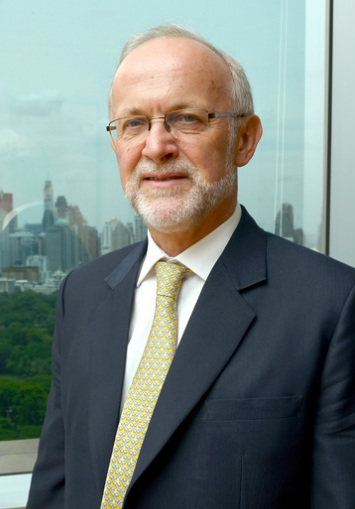
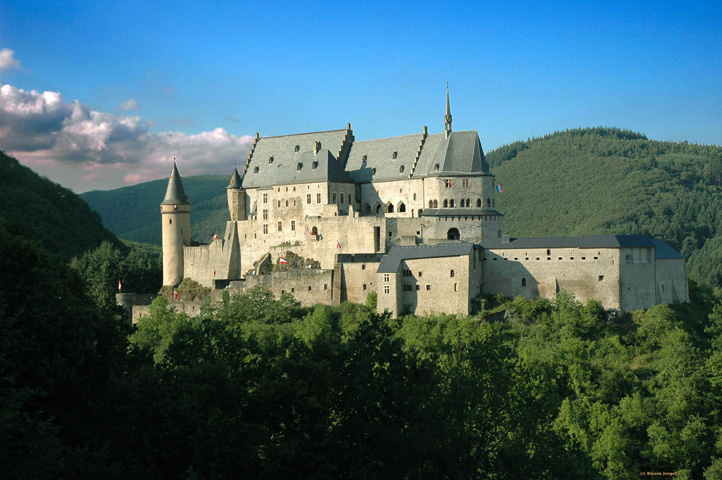
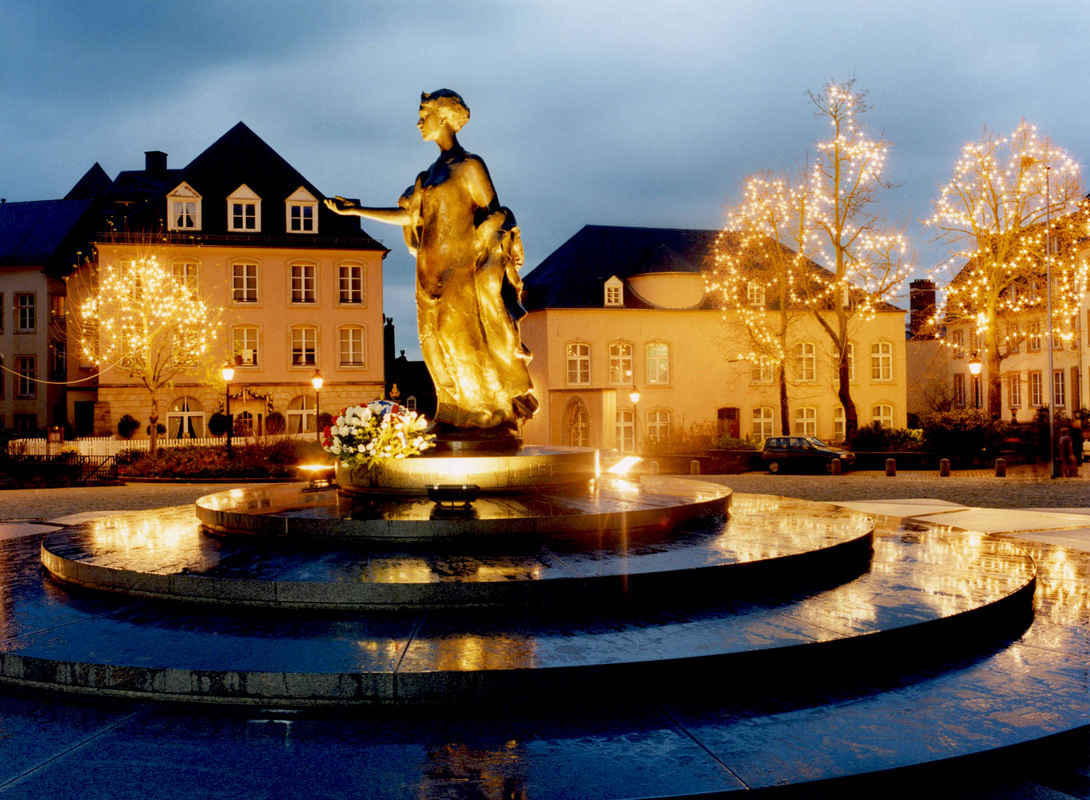
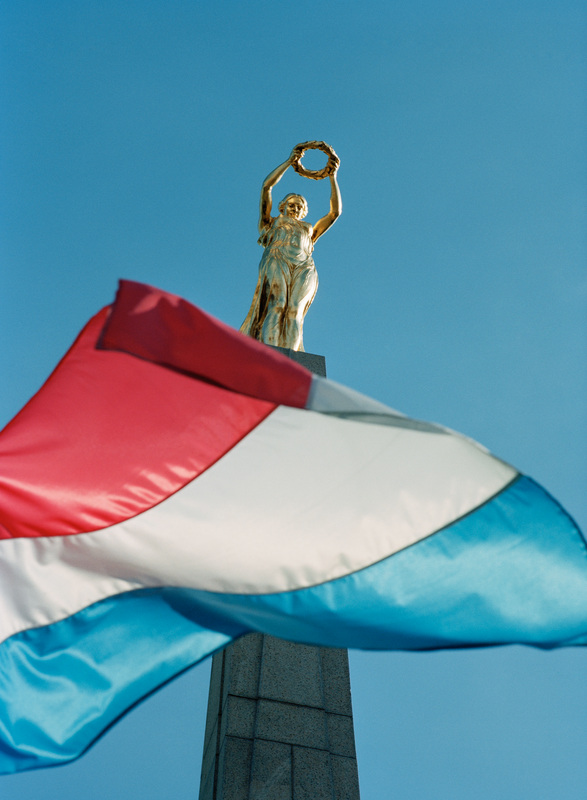
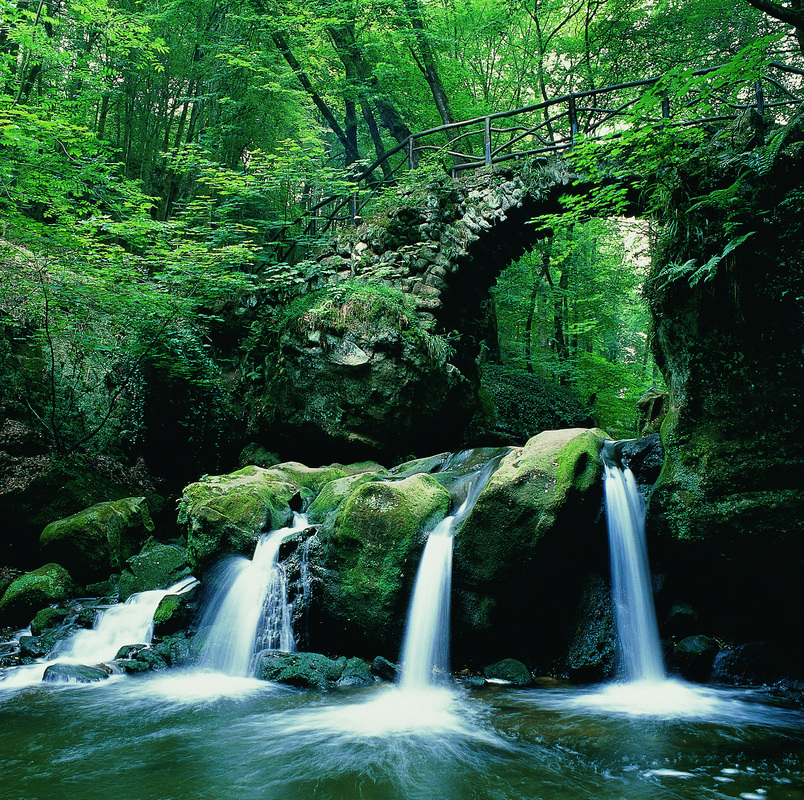
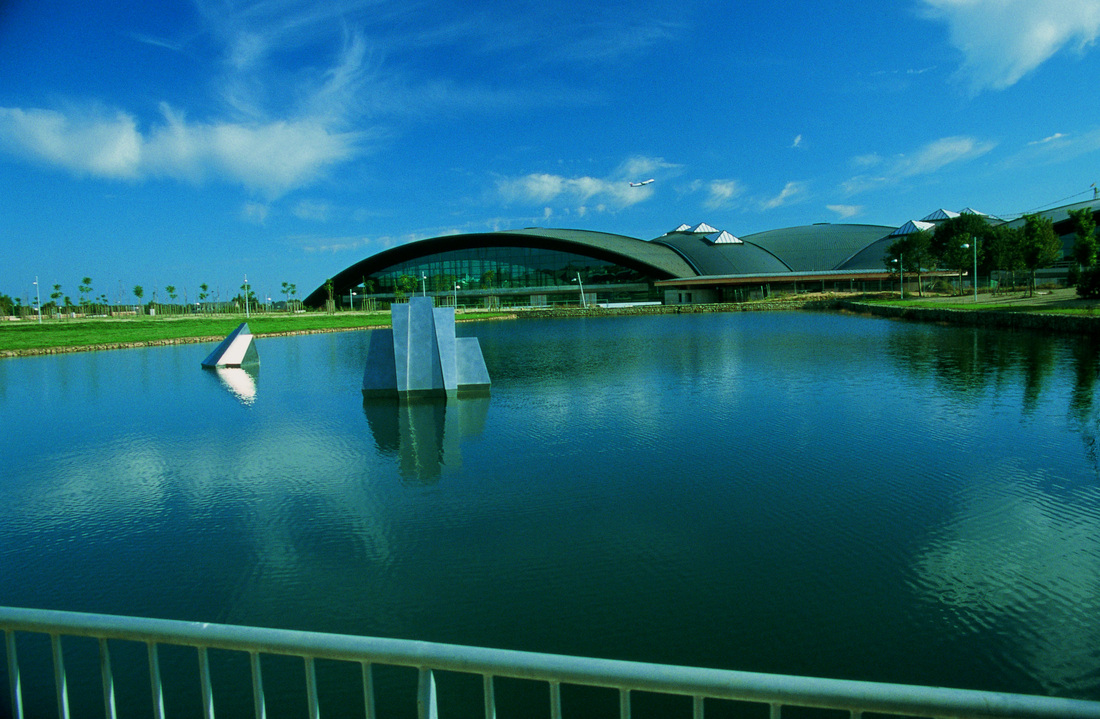
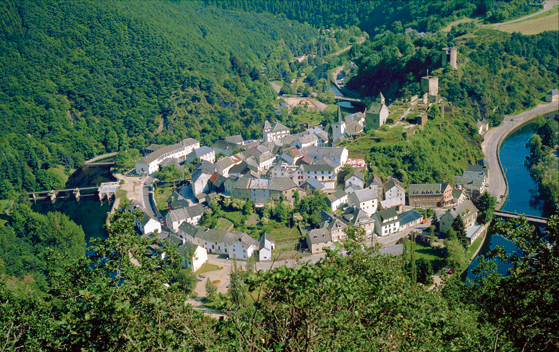
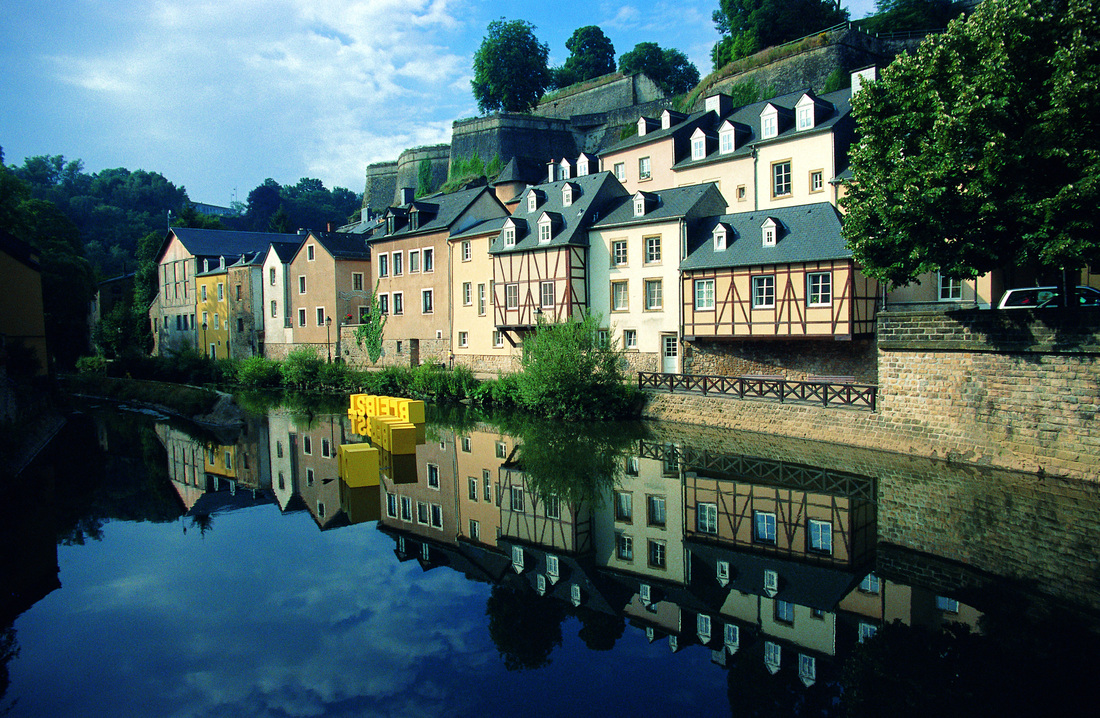
 RSS Feed
RSS Feed
















